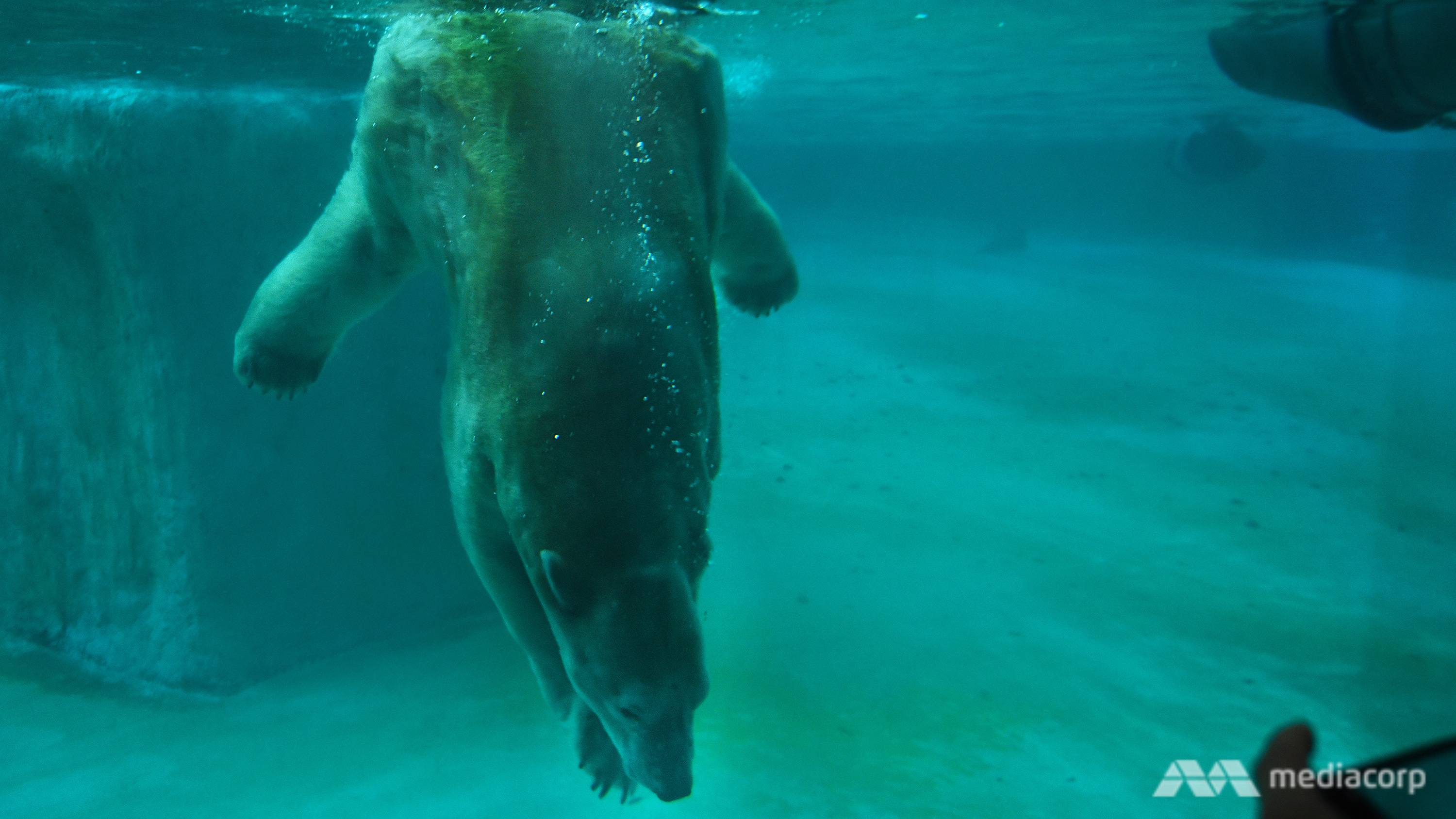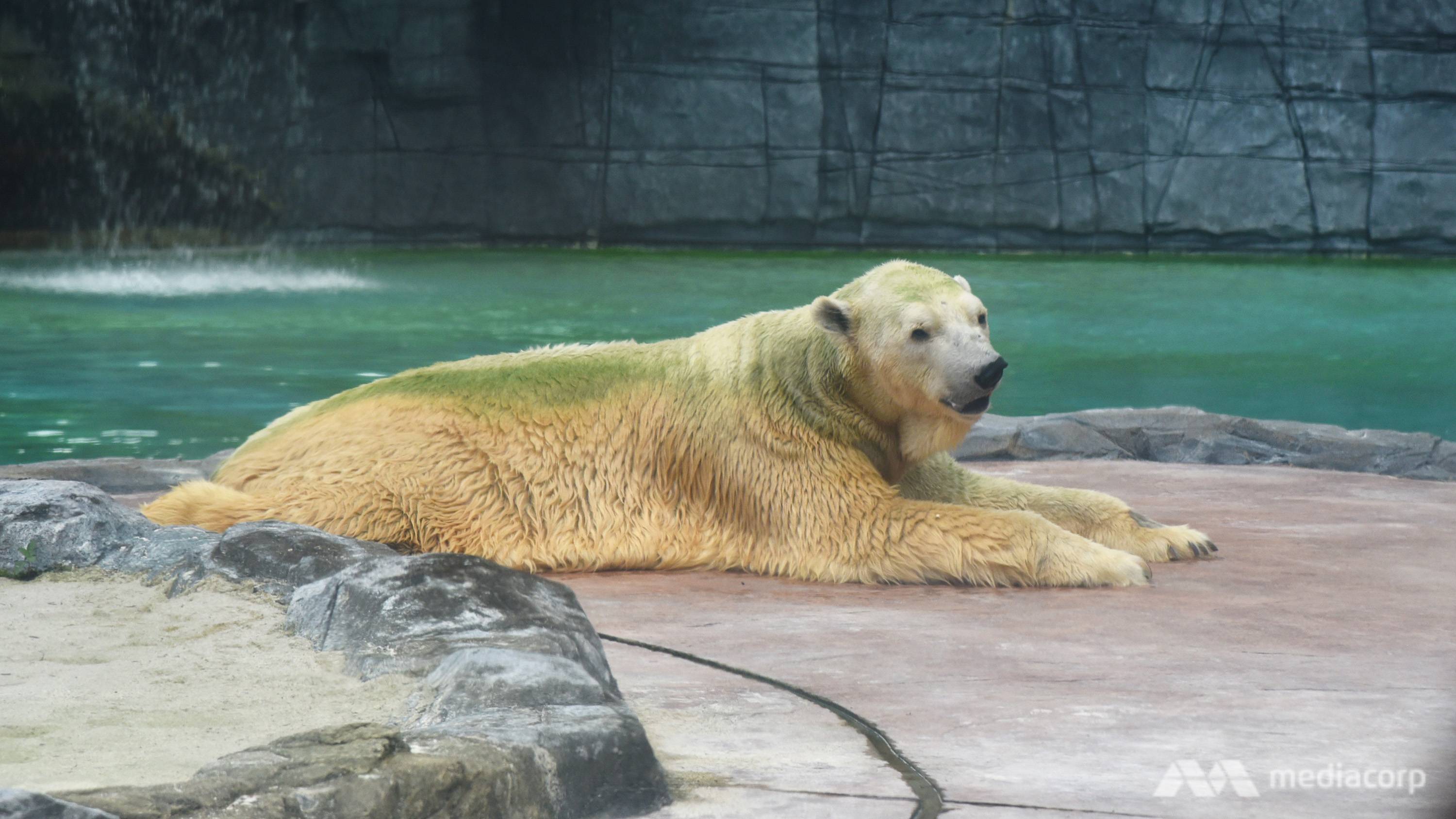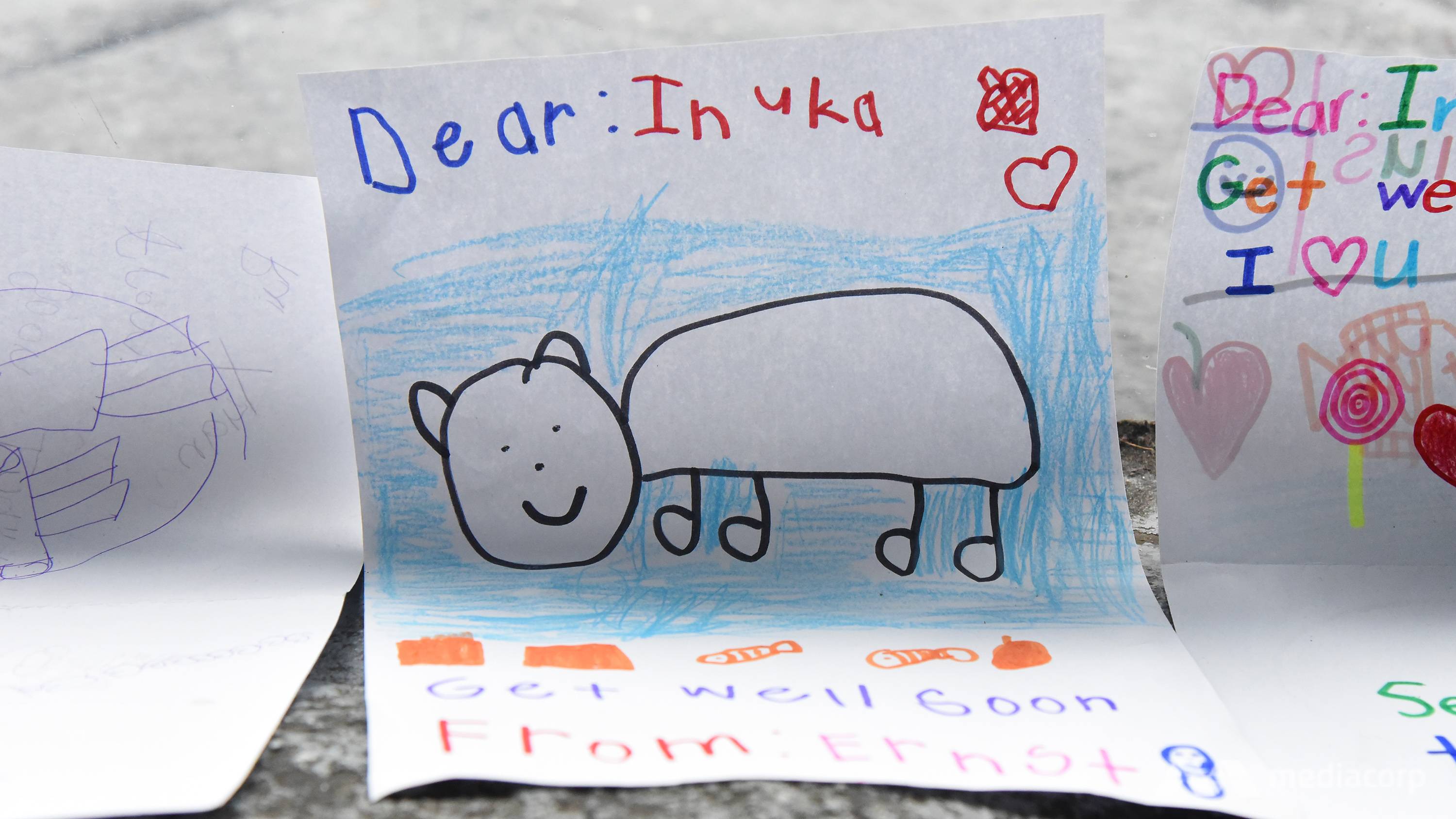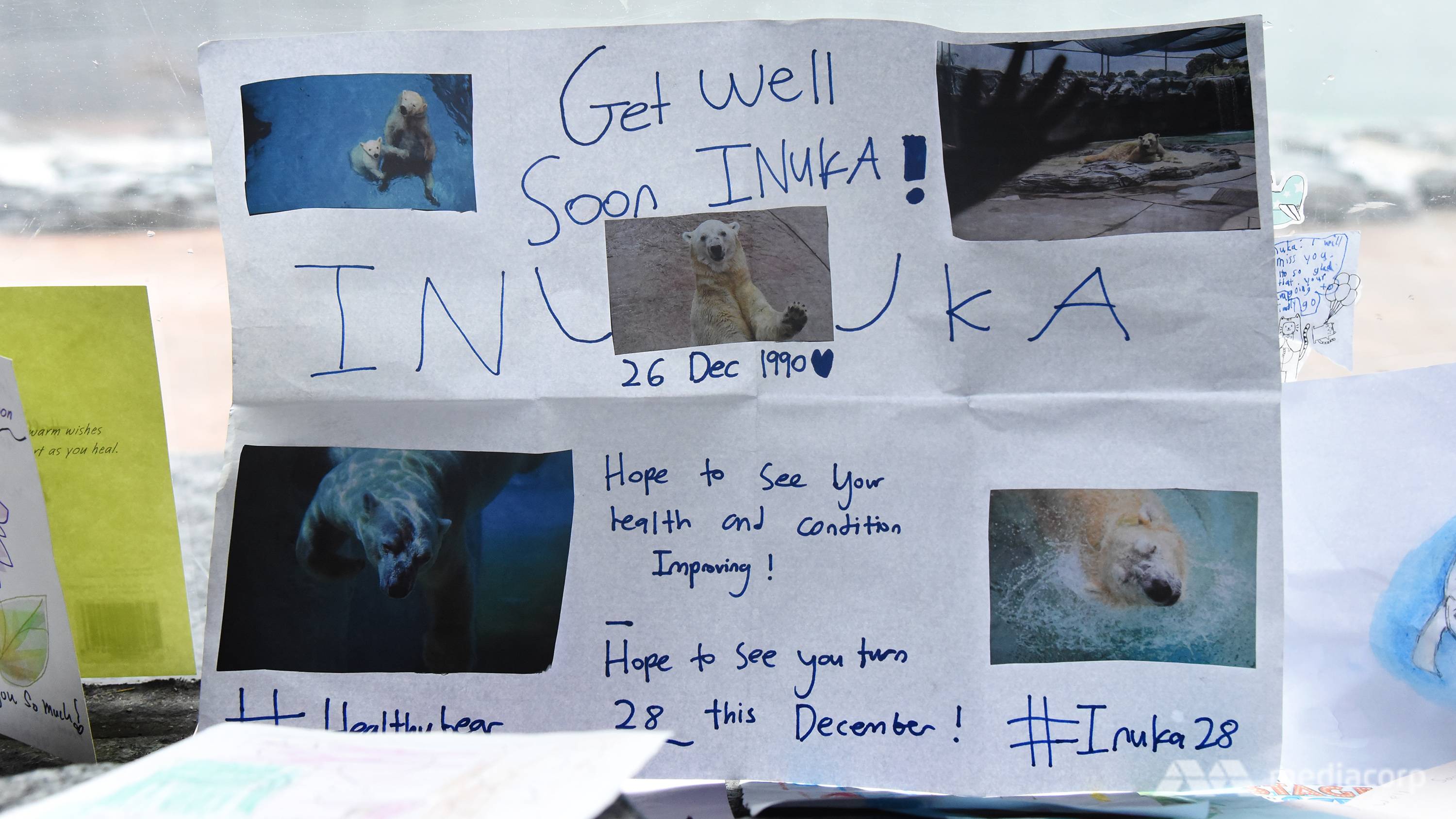Singapore
Singapore Zoo will not bring in any more polar bears, says Wildlife Reserves Singapore.
Inuka the polar bear is seen in its enclosure. (Photo: Gaya Chandramohan)
SINGAPORE: Singapore’s last polar bear, Inuka, has been put down on “humane grounds” after a second health examination in three weeks found that its health had not improved despite intensive treatments.
The 27-year-old polar bear was put into “deep sleep” under anaesthesia at around 7am on Wednesday (Apr 25) and was not revived, said Dr Cheng Wen-Haur, deputy CEO and Chief Life Sciences Officer of Wildlife Reserves Singapore (WRS).
Any form of treatment would have caused it more stress and prolonged its suffering, Dr Cheng added.

Inuka dives down in its pool on Apr 23, 2018, two days before it was put down. (Photo: Gaya Chandramohan)
“Today’s medical examination revealed that the open wounds on his paws and abdomen had not significantly improved despite additional treatment over the last three weeks. These wounds, which were quite deep, would have caused pain and discomfort to Inuka, and would only be aggravated as his arthritis worsened,” WRS said in a statement.
“The vets had hoped that the treatment instituted since the last checkup would have resulted in more improvement, and as it was not the case, it was clear that Inuka’s health and welfare state was compromised and the responsible course of action was not to prolong Inuka’s suffering,” WRS added.

Inuka was put down on Apr 25, 2018, after a second health check in three weeks. (Photo: Gaya Chandramohan)
Mr Mohan Ponichamy, deputy head keeper and one of Inuka’s primary caregivers, said the keepers spent the entire night with Inuka, ensuring it was comfortable.
A private memorial service will be held on Thursday. An autopsy will be done to fully understand Inuka’s condition, and the zoo said it may also preserve its body parts for educational purposes.
Inuka’s exhibit will be refurbished and redesigned to house sea lions, the zoo said. The changes will be made over the next few months.


Cards and drawings of Inuka left by zoo visitors. (Photos: Gaya Chandramohan)
The polar bear had been kept under close watch and away from its exhibit since Tuesday. It was found to be less active in recent weeks and preferred to rest than playing and interacting with its keepers.
Inuka was born in the Singapore Zoo in 1990 and was the first polar bear to be born in the tropics. It had lived beyond the average life expectancy of 15 to 18 years of polar bears in the wild and 25 years in captivity.
The zoo said in 2006 it will not bring in any more polar bears to Singapore – a decision that was reaffirmed last month and is in line with its focus on featuring tropical wildlife and threatened Southeast Asian species, WRS said.
Additional reporting by Tan Si Hui.




